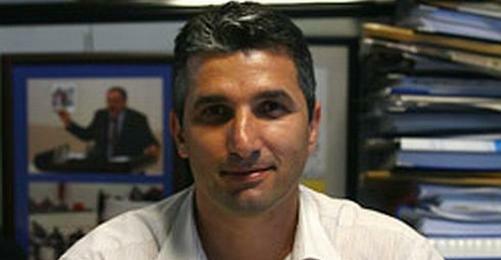Hrant Dink murder
OSCE Urges Turkey to Stop Prosecution of Journalist Şener

Miklos Haraszti, the OSCE Representative on Freedom of the Media, asked Turkish authorities yesterday (18 June) to drop charges against journalist Nedim Şener for his investigative book on the murder of fellow journalist Hrant Dink, and called for urgent reform of laws that restrict freedom of expression.
Letter to Foreign Minister
"Şener is prosecuted in defiance of freedoms that both OSCE commitments and Council of Europe standards grant to critical publications," wrote Haraszti in a letter to Foreign Minister Ahmet Davutoglu. "What he did was critically assess the events leading up to Hrant Dink's murder, and the deficiencies afterwards in the handling of the case and in the prosecution of the perpetrators."
"Justice must not be degraded into an act of revenge by the criticized authorities," said Haraszti.
Şener, a journalist for newspaper Milliyet, faces up to 28 years of imprisonment for writing a book, entitled The Dink Murder and Intelligence Lies. The book alleges that security forces failed to stop the murder of the well-known Turkish-Armenian writer in 2007, and cites alleged incidents of negligence by gendarmerie, police and national intelligence officers working on the case.
"Media freedom commitments may be complied with only if fact-finding journalism receives the full backing of the law, and inaccuracies, if any have occurred, are not criminalized," wrote Haraszti in the letter.
Legislation must be modernised
"There exist legal provisions in Turkey that could be misused to curb freedom of expression and information," he added. "The Criminal Code, the Press Law, the Anti-Terrorism Law, and the recent Law No. 5651 on Internet regulation all need to be modernized so that they cannot be used to restrict speech rights."
"By dropping the charges against Sener, Turkey could now stop punishing the messengers of unwelcome news, and instead carry out much-needed legal reform to ensure freedom of expression."
Hrant Dink had publicly discussed the killing of Armenians in 1915 in terms that went against the official Turkish interpretations of history. For this, he was convicted in 2005 based on Article 301 of the Criminal Code, "denigrating Turkishness', and murdered in January 2007 by radical activists. The trial of the persons accused in his murder still continues. (OSCE/AG)
* This press release was taken from the OSCE website. Sub-headings were added by bianet.











